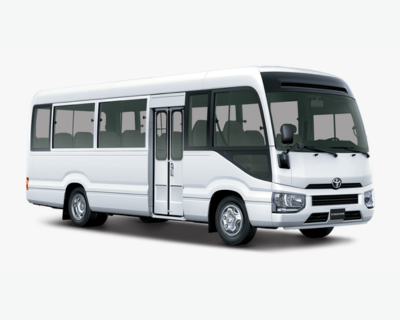Minibus Rental

Overview
- Passenger Capacity: Minibuses are designed to transport a relatively small number of passengers compared to larger buses, typically ranging from 9 to 30 seats.
- Versatility: They are versatile vehicles suitable for various purposes, including public transportation, tourism, airport shuttles, and corporate transport.
- Compact Size: Minibuses are smaller in size compared to full-sized buses, making them easier to maneuver through narrow streets and congested urban areas.
- Comfort: Despite their smaller size, modern minibuses often offer comfortable seating arrangements, air conditioning, and amenities such as entertainment systems and WiFi.
- Efficiency: They are generally more fuel-efficient than larger buses, making them cost-effective for operators and environmentally friendly.
- Customization: Minibuses can be customized to suit specific needs, with options for wheelchair accessibility, different seating configurations, and storage solutions.
- Safety: Many minibuses are equipped with safety features such as seat belts, ABS brakes, and stability control systems to ensure passenger safety.
- Affordability: Minibuses are often more affordable to purchase and operate compared to larger buses, making them a popular choice for businesses and organizations with smaller transportation needs.

